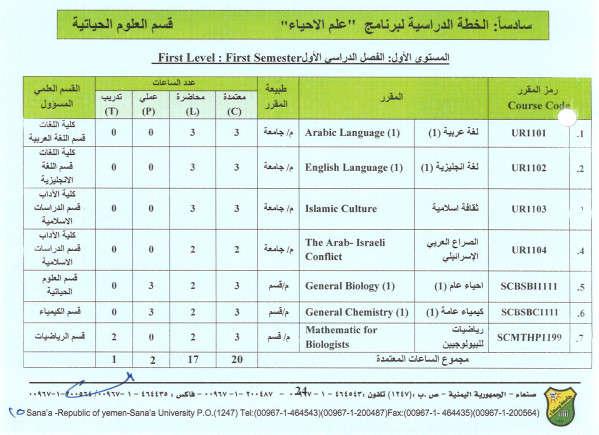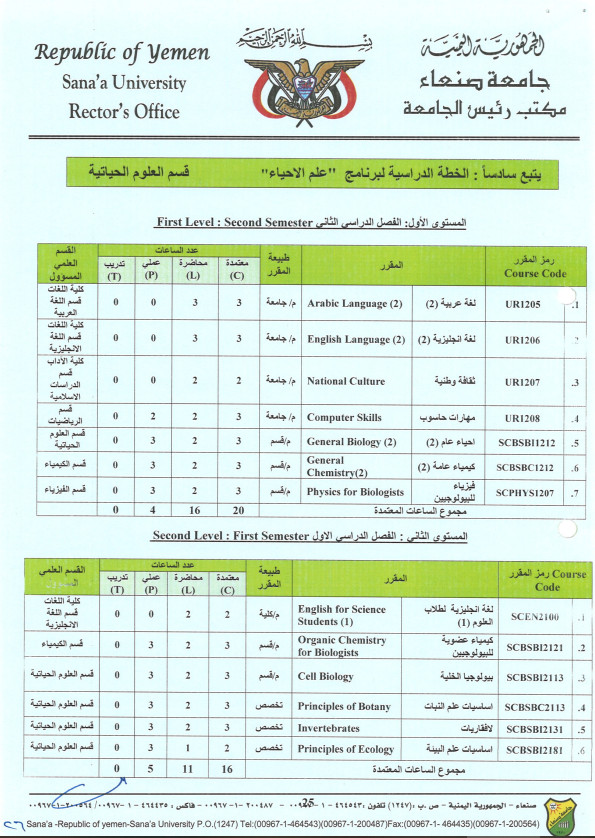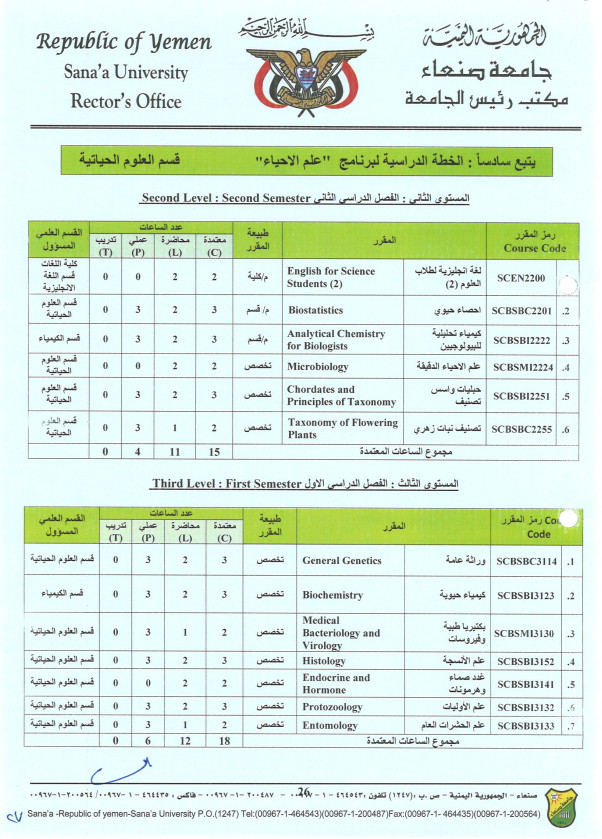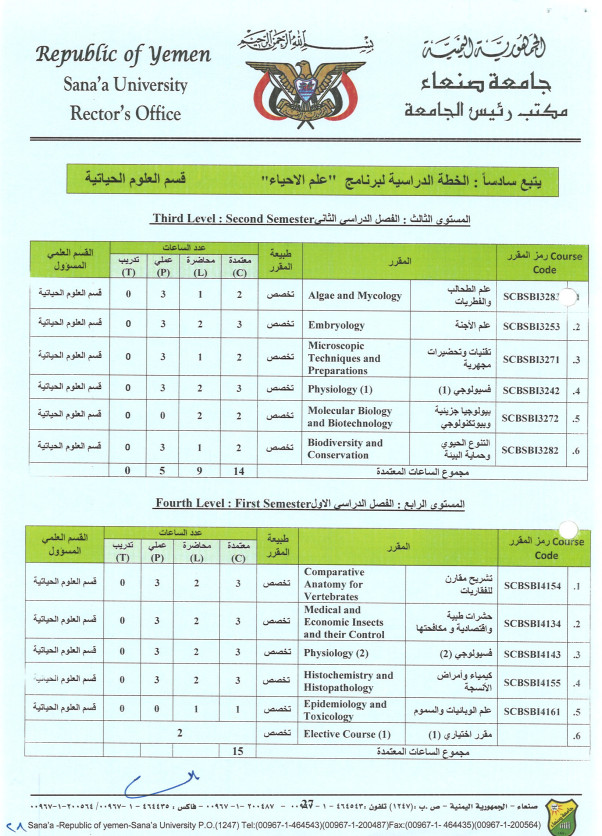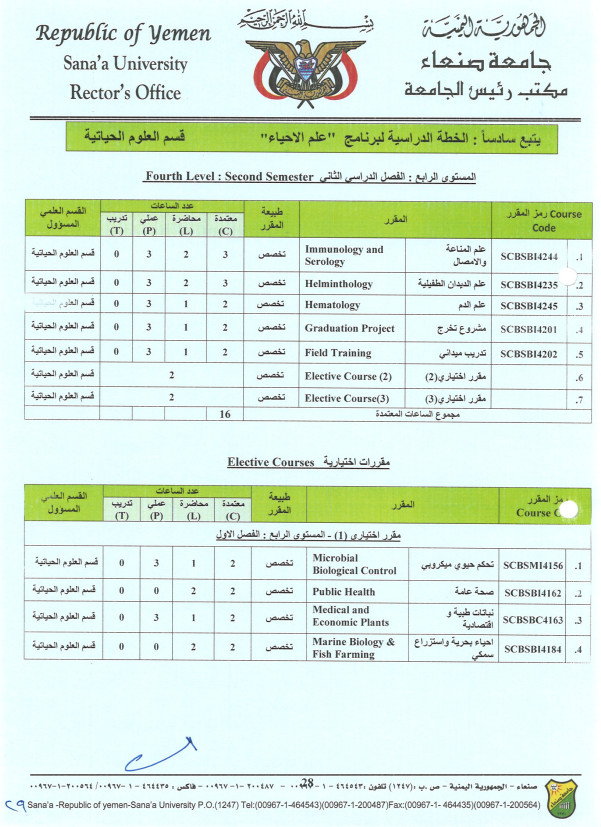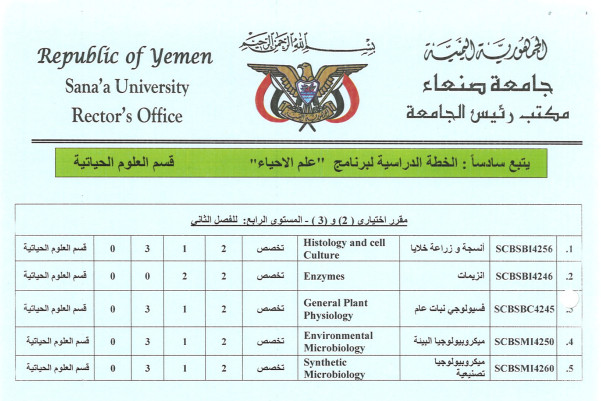Preparing highly qualified graduates in the field of biology through a specialized program that qualifies them to compete in the labor market.
1. Provide the graduate with basic and applied scientific principles and concepts in the field of biology and related sciences and keep abreast of scientific development.
2. Providing the labor market with graduates who are able to communicate and equipped with scientific and technical expertise in the field of biology, enabling them to work in universities, institutes, research centers and related laboratories
3. Preparing graduates who are able to collect information, analyze and interpret data scientifically.
4. To provide the graduate with the skills of classification of living organisms, conservation and Environmental Protection.
5. Preparing a graduate who is able to use the relevant technologies of the specialty and work in a team with high efficiency.
6. Providing an appropriate scientific and practical environment to encourage students to learn, compete and achieve fruitful practical achievements.
The Bachelor of life sciences program at the graduate achieves specific specifications, so that the graduate is able to:
1-familiarity with the basic, applied and technical concepts of life sciences and associated sciences.
2-the use of basic knowledge and concepts in solving problems in his field of specialization and in related fields
3-designing and implementing laboratory experiments in the fields of Biosciences by possessing the necessary knowledge and experience in advanced laboratory devices and techniques
4-work in a team and adheres to ethics and has the ability to communicate effectively and put forward appropriate ideas to find solutions to related problems.
5-classification of living organisms and distinguishing between common groups that belong to different groups and their ecosystems, conservation and Environmental Protection
After successful completion of the program, the graduate will be able to :
Knowledge and understanding skills :-
A1: reviews scientific and technical concepts and theories and their applications in biology and related sciences.
A2: recognizes the vital processes in living organisms and explains the pathogens and the ways of their transmission between different organisms
A3: characterizes the phenotype, internal and histological structures in the body of an organism and on the different stages of its growth and development in different denominations.
: A4 connects various scientific information and knowledge and defines scientific terms.
A5: recognizes the characteristics of different communities and ecosystems suitable for the life of living organisms and their impact on the surrounding environment.
Mental skills:-
B1: explains the vital processes in living organisms and related natural phenomena
B2: explains the different ways of occurrence of diseases, methods of combating them and finding solutions to problems related to
B3: differentiates between physiological processes and histological changes and their imbalances
B4: distinguishes different organisms in their environments and classifies them.
B5: uses the skill of critical and creative thinking to carry out experiments, solve problems facing him and interpret phenomena in the surrounding environment.
Professional and laboratory skills:
C1: carries out laboratory experiments following security and safety procedures, examines laboratory slides related to the specialty, analyzes their results and interprets them scientifically.
C2: he learns independently in his field of specialization or through training programs and develops effective and flexible methods to adapt to his studies and work.
C3: employs the skills and scientific knowledge acquired by him in solving problems related to laboratory and field in order to serve society and preserve the environment.
C4: recognizes and classifies organisms related to specialization following the scientific method.
C5: records organisms from their different environments and documents the information associated with them .
General or transitional skills:
D1: shows interest in the environment and its biodiversity and actively contributes to awareness and community service and the importance of maintaining public health
D2: works independently or as part of a research team effectively using modern skills and technologies related to the specialty and is good at writing professional reports in his field
D3: uses safety procedures in laboratories and adheres to the ethics of professional life sciences.
D4: respects the moral values of the community in behavior and deed and values the value of time
D5: effectively communicates, collects and summarizes information from its various paper and electronic sources.
